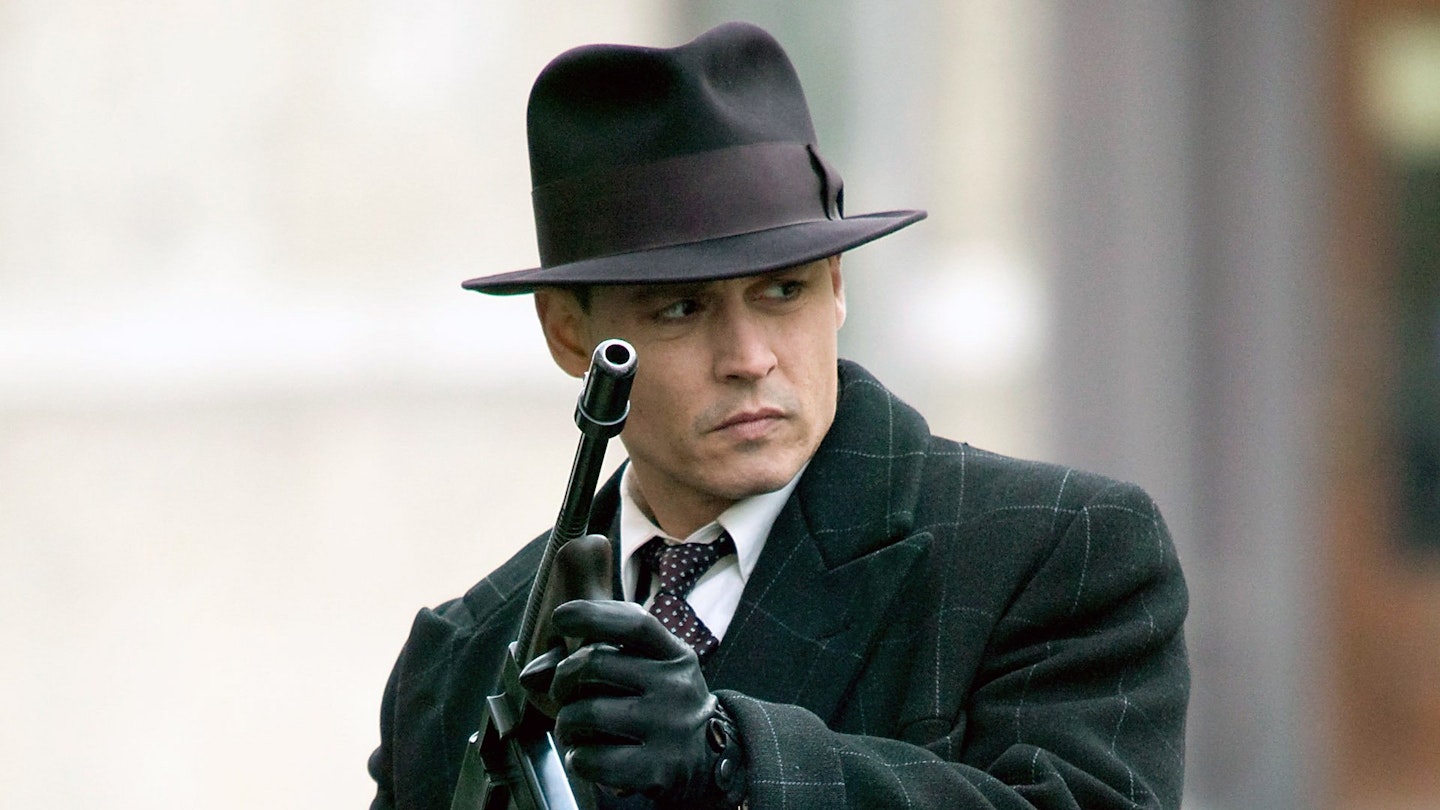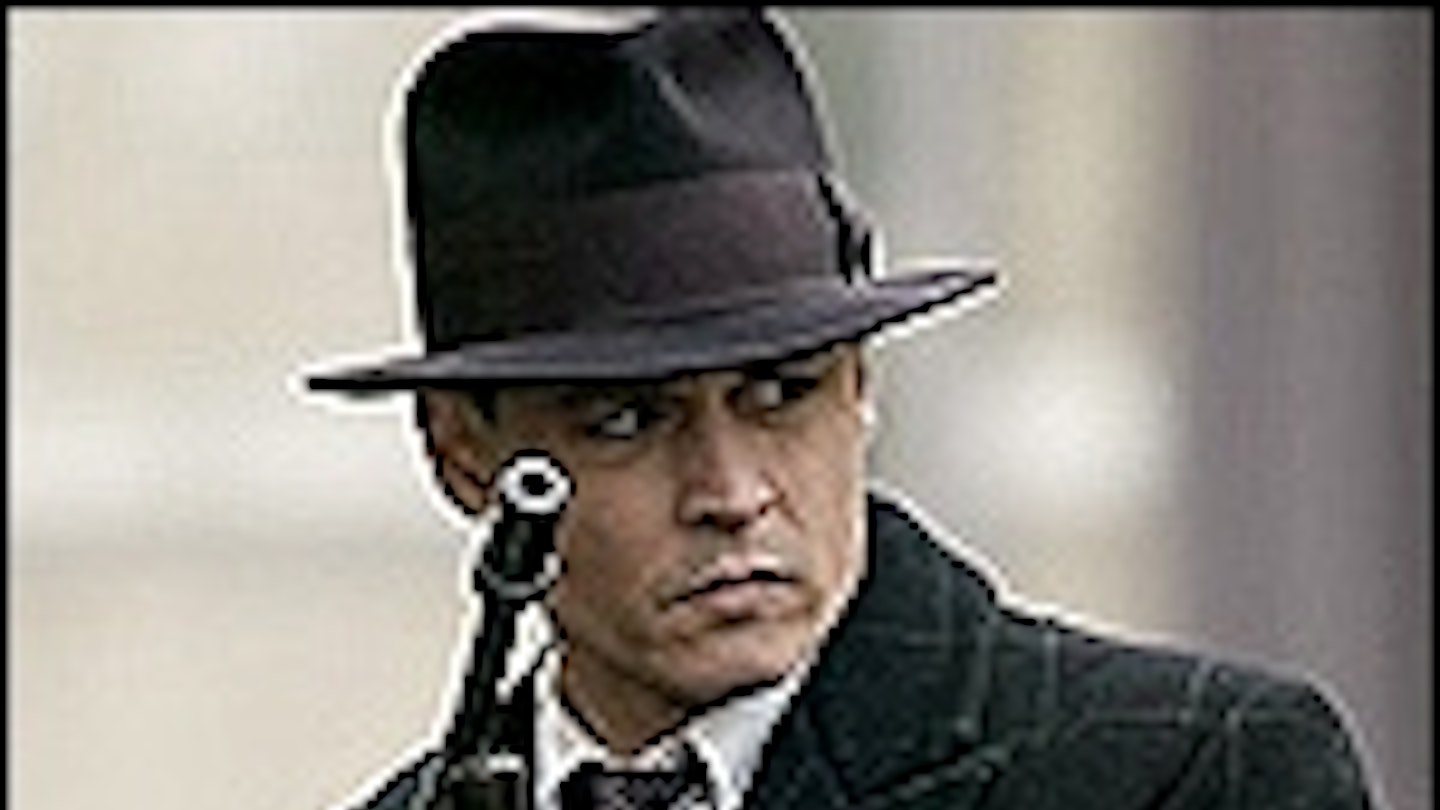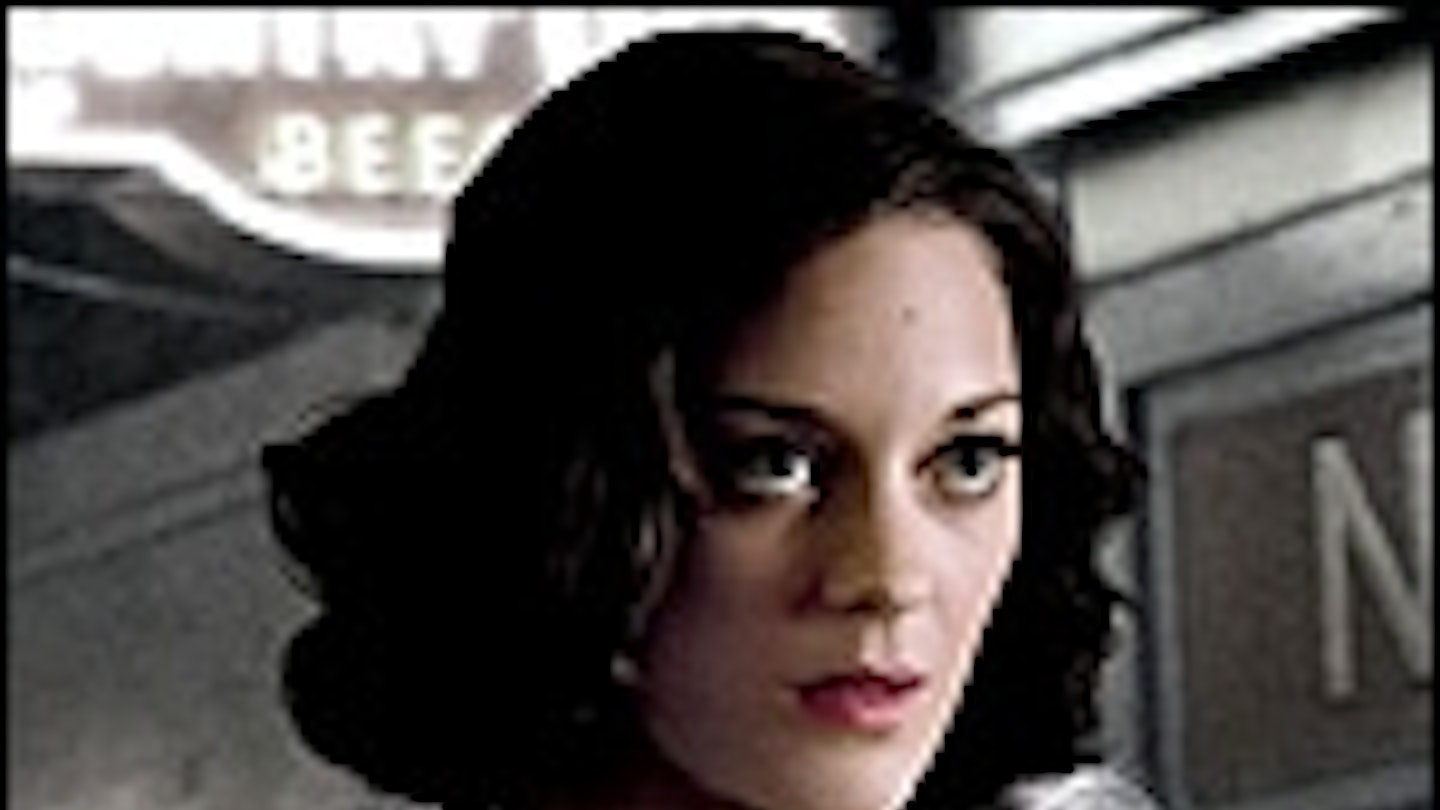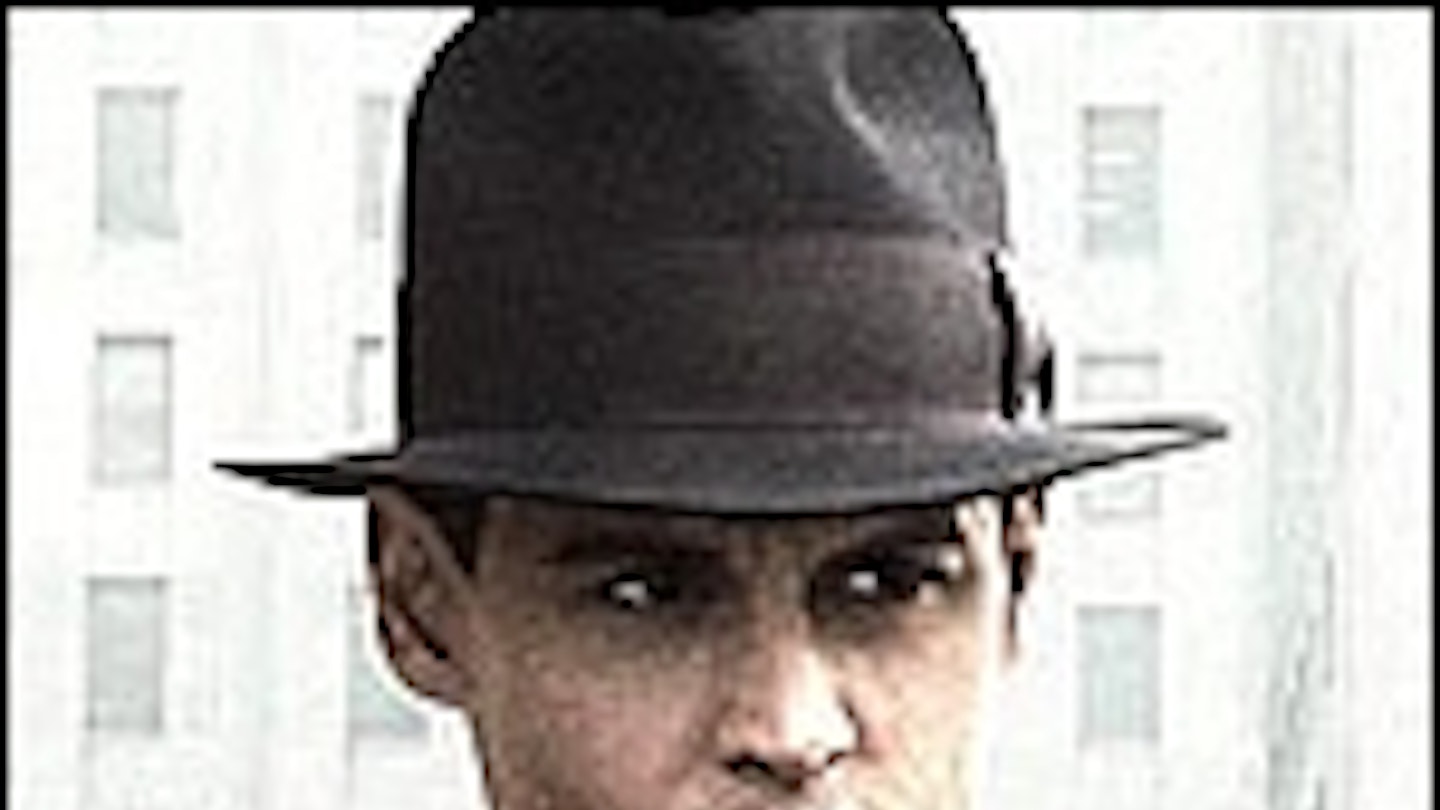Great Scott, what’s this? We’re slap-bang in the middle of the summer season — humankind battling for survival against robots the size of fairground rides, buildings crashing around us like piecrust, rom-coms, bromances, Will Ferrell and Spock — and all of a sudden somebody is treating us like an adult. Within seconds of Michael Mann’s latest crime drama, there comes the chilling realisation that, goddamn it, we have got to use our brain. Who ordered this? We were all relaxed, gormlessly sucking up the latest maelstrom of CG, when something quite brilliant turns up. Rich and complicated lives, moral grey areas and man-sized subject-matter, all located in a down-to-the-plug-sockets recreation of 1933? Surely there’s been a rupture in the time-space continuum?
Indeed, after barely a caption, we’re tossed headlong into a prison break. Although contrary to standard operating procedure, our hero — at least, our antihero — appears to be breaking into prison. Then, Mann, who both directs and rewrote novelist Ronan Bennett’s screenplay based upon Bryan Burrough’s vibrant history, is having no truck with the weary tropes of gangster movies, biopics, period pieces or, for that matter, the basic principles of what we know as films...
Whatever James Cameron’s Avatar may resemble in cinema’s ‘big shake-up’ later this year, this less self-aggrandising film, shot entirely on an ultra-high resolution digital format, marks a new cinematic language. The genre may seem familiar, that rat-a-tat-tat of Tommy guns, molls and dapper hoods, but never with this level of immersion. If Mann’s mission was simply to portray the early ’30s with pin-sharp realism, he has triumphed. This is not a film about the ’30s — it is a film in the ’30s.
Those familiar with a Mann’s man — embattled souls with good skills — will spot the guile and moral slipperiness in John Dillinger. Labelled Public Enemy No. 1 by conniving FBI supremo J. Edgar Hoover, we catch up with him cutting loose after nine years in jail. Dillinger left prison less corrected than fully educated in the criminal sciences, and confident enough to walk straight back into Indiana State Pen and pluck out a hatful of assistant crooks.
His gang, with its shifting headcount of hoodlums (the likes of Baby Face Nelson and Pete Pierpont had an irritating habit
of not being as good as him), took down scores across Chicago and the Midwest with impunity. It was a slick operation, in and out in minutes. Mann, too, has the sense not to dwell on the old hat of movie heists, gliding in and out of these marbled banks to get on with the business of Dillinger’s rise to fame. This is not a film about bank robbing, but a bank robber. And given most of the population were on the verge of starvation, the public saw a dashing hero sticking it to the man, not an enemy.
Himself a movie-lover, Dillinger was greatly amused at how Hollywood would riff on his moves in B-movie gangster flicks playing to millions. Onscreen he gleamed up as Clark Gable, and there is a sly resonance to Johnny Depp slipping into the role — a star part-Gable and part-Dillinger. Already au fait with the legend, Depp has embraced his director’s mission to strip away the wise-guy melodrama and Cagney sneer of movie mythology to see what lies beneath. More contained a vessel than those rock stars Sparrow and Todd, Depp’s Dillinger is equal parts flamboyant devil and Zen-like McCauley professionalism. He treated the press like playthings, nonchalantly posing for snappers, but would take on an icy control as he invaded banks; history has it that he only killed one man.
At the centre of him, and the nut that Depp and Mann are out to crack, lies an enigma — just what motivated the rogue? Money, yes; fame, certainly — but he was manically living for the moment. There was no getaway plan, no 30 second back-out if he felt the heat around the corner. To some degree, he thought himself untouchable.
In one of many fantastical moments based on real events, Dillinger saunters into a Chicago police department, the goons too busy listening to the ball game to pay him any heed, to become rapt in the maps of his crimes, details of his partners, and his own mugshot pinned to the wall. On his way out, he stops to check the score. As with many Depp performances, there is this kind of magical undercurrent, an intoxicating compound of angel and demon.
Naturally, Hoover charged his best man with the task of “getting Dillinger”. Melvin Purvis had just put a rifle bullet through the midriff of a Pretty Boy Floyd fleeing through an apple orchard, and the media were lapping up this G-man’s own good looks. Born into wealth, and happy to show it, Purvis had the aura of a gentleman killer. Bale, with a seamlessly genteel purr, paints him as another consumed by the rigours of his task. A master cop hot on the elusive trail of a master thief... Ring any sirens?
Mann may squirm, but the Heat-in-the-Depression tag is inevitable. The comparisons are numerous: cascading storylines, languid cityscapes, architectural framing and that rigorous unpicking of male psychology (cops and robbers are all deep-down misunderstood). Oh, and midway through, while Dillinger and his gang recuperate in a wooded lodge after a job-gone-sour, Purvis catches up with his foe. Fourteen minutes later — after a symphony of submachine gunfire, that ‘Chicago piano’ — you can breathe again. Like Heat’s LA street battle, it is another extraordinary mix of cinematic verve and physical veracity — every muzzle flash and recoil the product of months of research and testing.
Yet, more than just their eras, the two films feel like different worlds. Such is the docu-clarity of this digital skin, you have to readjust your thinking. This isn’t the glamour of the movies, warmly draped in celluloid, but rather an instantaneous, ‘stunning’ reality: every facial pore, every herringbone stitch, every silvery wisp from a smoking gun comes crystal-clear. Strangely, it makes the film both period and contemporary: history through a sci-fi lens.
And more than just the fiery tale of Dillinger’s final weeks — which would happily serve most filmmakers — Mann takes up the canvas of America itself. Here are the forces that shaped a nation: phones; telegrams; the automobile revolution; the Mafia ditching extortion to make piles of dough from gambling scams; and the newspapers and moviehouses spreading headlines across the country in hours. In a small, memorable role, Billy Crudup as the brilliant Hoover, disdained by his antiquated elders, practices the malign magic of spin doctoring. The head of Dillinger would make his burgeoning FBI, buzzing with anonymous G-men, unstoppable.
Dillinger, if anything, was the product of a different era. He was the last of the great outlaws, a trail of exalted but dubious men leading back to Billy The Kid and Jesse James. Mann’s movie lies at a cusp between great American genres: the dusty borderland between the Western and gangster movie.
It also finds time to be a love story. Billie Frechette, a coat-check girl with eyes like light bulbs, is swept up by Dillinger’s electric charm. “I like baseball, movies, good clothes, fast cars... and you,” he oozes, and she melts. As Billie, the wonderful Marion Cotillard is the heartbeat of the movie — she can see the inevitable doom of Dillinger’s run, yet still tries to swerve the car.
True, Mann is asking a lot of you: myriad characters come and go in the hurly-burly of the plot and we are required to keep up. So hard-and-fast-and-vivid comes the digital detail





